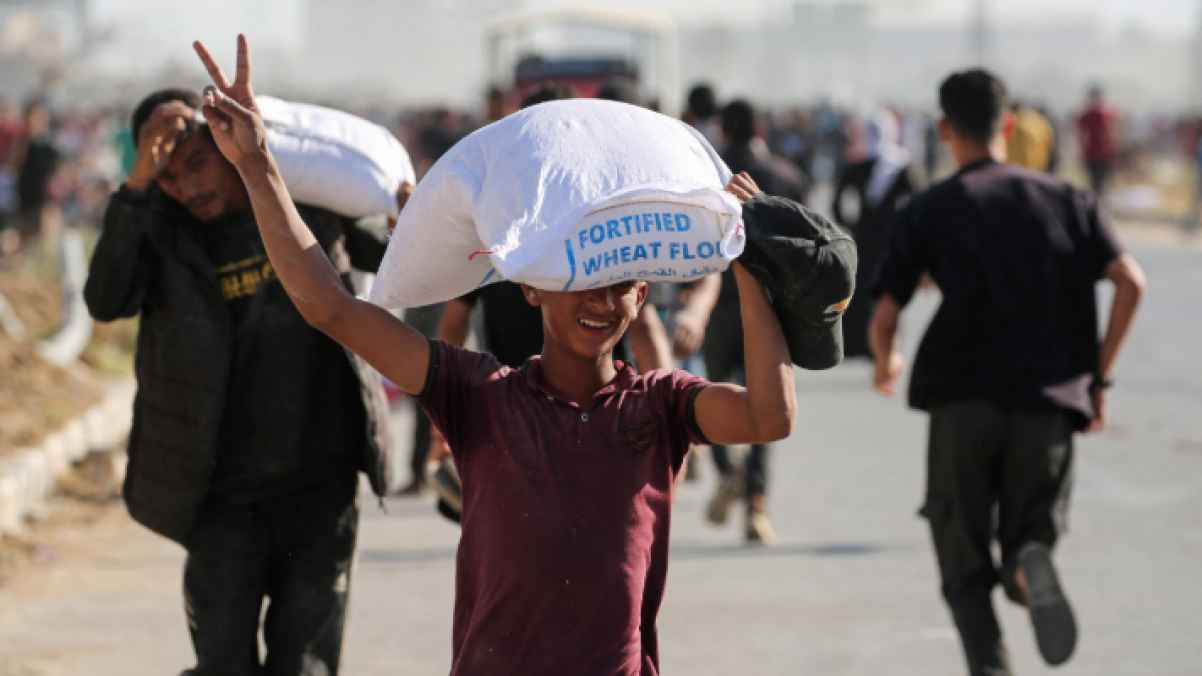Getting Flour: A Small Victory in the Battle Against Hunger

It wasn’t just a sack of flour—it was something like light piercing through a long, dark night. Time itself seemed to pause before that moment, granting it all the sanctity it deserved. And it truly did deserve it.
In Gaza, the city worn down by relentless bombings, exhausted by a suffocating blockade, and stripped of the features of its people by famine, flour has become more precious than gold—closer to a miracle than any miracle.
When that boy embraced the sack of flour, it was as if he were embracing a tiny homeland the size of a loaf of bread. He didn’t need to explain anything.
Bodies broken by hunger
The eyes around him understood. The hearts felt it. The hunger-wracked bodies trembled at the weight of that silent image.
The famine in Gaza is not just a fleeting headline. It is a life collapsing slowly—a body folding in on an empty stomach, children falling asleep clinging to a dream called bread, and mothers breaking their hearts to feed their little ones with what remains of love and tears.
In the narrow alleys, sometimes water is cooked instead of soup. Salt is poured into plates as a substitute for food. Leaves are boiled. Ash is baked.
Markets are empty. Lines are long. Hearts are emptier than the shelves. Families share a single crumb and wait for another that never comes.
It is not just a famine. It is a war on dignity, resisted only by the fierce pride of the Palestinian spirit.
In the Strip, hunger is no longer a passing sensation—it has become a second skin wrapped around souls, a scar etched into the collective consciousness, into the gaunt faces and hollow eyes of children born hungry, walking through life on fragile feet, searching for a reason to believe in tomorrow.
Withering bodies consume themselves—but dignity is not consumed. That sack of flour was carried as if carrying light through utter darkness. It wasn’t just sustenance for possible bread—it was a small certificate of victory in a war of starvation.
Even as the blockade tightens its jaws around the crossings and death hovers from the sky, that one moment of life was enough to tell the world: We do not break.
In Gaza, wealth is not measured by what you have, but by what you resist. Those who feed their children on crumbs of hope know that in humble flour lies enough to build a prayer, a sense of honor, and a future that will not be stolen.
Even at the peak of famine, the Gazan heart remains as fresh as bread, as warm as love, and as alive as truth.
